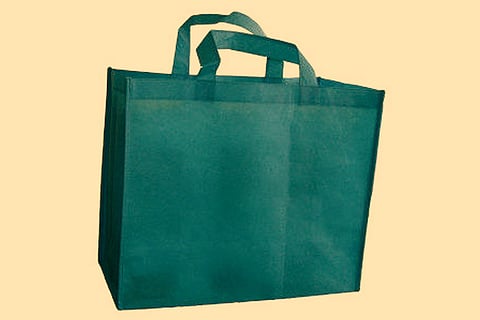

Chennai
Ganga Sridhar, a resident of Mylapore and core committee member of SWM-People Forum, was shocked to see polypropylene bags peddled out by large and smaller outlets alike, passed off as an eco-friendly alternative to plastic. Ganga, who has been advocating cloth bags as alternative to plastic, said,
“The non-woven polypropylene bags look like fibre and is passed off as cloth. Many are unaware of its harmful effects, as polypropylene is tougher to recycle than plastic. When a few members of our group tried to speak to the shop owners, they were treated rudely,” she said.
Sivagami K, a post-doctoral fellow from IIT-Madras, said most polypropylene bags available in the market are non-recyclable, as they are of mixed-variety. “To make the bags stronger, fillers such as calcium carbonate, colouring agents and other free polymers are added, which makes it difficult to recycle,” said the expert. Dharmesh Shah, a policy expert, said that polypropylene has a much worse impact on the environment than plastic. “The polypropylene fibres from these bags are harmful, as they are liberated into the environment with every use. The microfibre pollution – caused by synthetic clothes and objects like polypropylene bags – is poisoning the oceans and getting into the food chain,” said the environmentalist.
In 2009, Delhi HC ruled that non-woven polypropylene bags cannot be a substitute for plastic bags, as testing at Shriram Institute of Industrial Research clearly indicated that these bags contained polypropylene to the tune of 98.3% - which is clearly a non-biodegradable material. In the government order by the TN government, polypropylene is included in the list of banned “plastic” items, which will be enforced from January 1, 2019.
Rajendra Ratnoo, a member of the steering committee, which will oversee the implementation of the plastic ban, said that all districts are conducting campaigns to educate stakeholders.
Visit news.dtnext.in to explore our interactive epaper!
Download the DT Next app for more exciting features!
Click here for iOS
Click here for Android